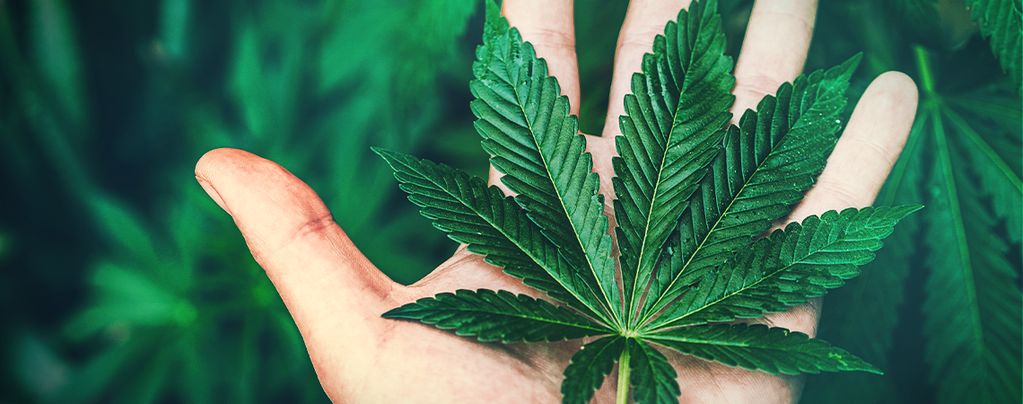
Is Cannabis Addictive?
Anti-drug activists would have you believe marijuana causes a life-ruining addiction, but we know that isn't the case. Some stoners would have you believe there's no risk of addiction at all, but that isn't the case either. Cannabis isn't completely safe in that regard, but there are different levels of addiction that should be considered.
Ever since the Nixon era, there have been people in power trying to convince citizens that marijuana is dangerously addictive. They'd spread the message that, like heroin, crack, or any other drug, it would only take one hit—after that, you might as well have sold your soul to the devil.
Today, of course, the overall attitude has become far less negative and paranoid. This might be an overcorrection in some cases, though, as many now believe marijuana has no addictive potential whatsoever. That, unfortunately, is not the case, but that doesn't mean Nixon was right. There's far more to the concept of addiction than many realise, and there are different types that need to be considered to fully understand cannabis' addictive potential.
DEFINING ADDICTION
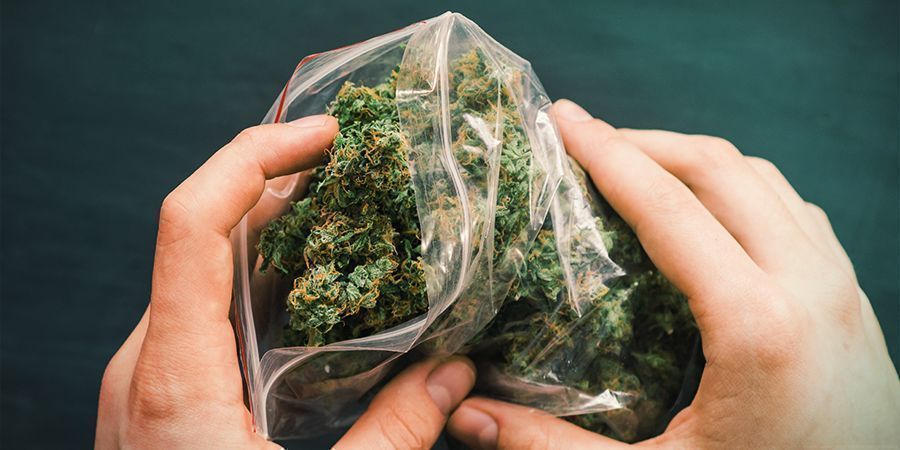
To keep having this conversation, we should lay out a basic definition for addiction. As we do with other diseases, we should also consider the different stages of a developing addiction.
THEORETICAL MODEL OF ADDICTION
As researchers Koob and Volkow describe it, addiction is defined by four different factors. First, it has to be chronically relapsing, meaning it can consistently come back, even when it seems to have stopped. Beyond that, addiction is marked by consistent pursuit and consumption of the drug, an inability to control consumption rate, and negative emotions when the drug can't be obtained.
When all of these behaviors occur at the same time, the individual in question is considered addicted to their substance of choice. Even in recovery, one is still considered addicted if they've shown those behaviours in the past for a prolonged period of time.
THREE STAGES OF ADDICTION
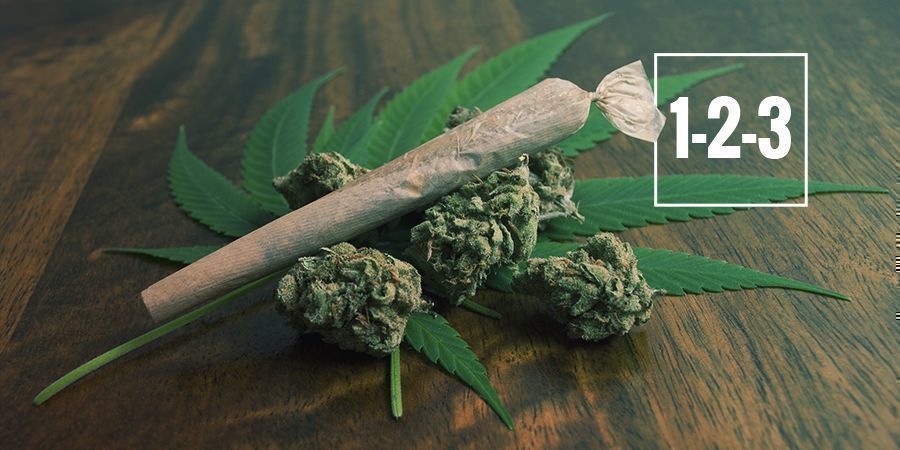
The Koob and Volkow model describes addiction in three stages. It begins with binge-intoxication, followed by withdrawal/negative affect, ending up at preoccupation/anticipation.
Binge-intoxication is characterised by a couple of neurological behaviours. First, and most obviously, you'll notice excessive impulsivity concerning drug use, along with a frequent compulsion to do them in spite of negative consequences. The second sign is high dopamine release in certain situations—specifically, moments the brain associates with drug consumption. The brain does this, simply enough, to motivate you to take the drug again.
The withdrawal/negative affect stage, triggered by opponent-process responses that come after binges, has various neurological signs. To start, the reward system in your brain is altered to have a higher threshold for non-drug reinforcers. That, in plain language, makes it harder for you to feel motivated to do things that aren't associated with the drug. Your ability to control emotions is also compromised, especially in terms of negative feelings. Specifically, the withdrawal stage tends to lead to increased uneasiness, dysphoria, sickly feelings, and chronic irritability.
When withdrawal is over, the preoccupation/anticipation stage creates a risk of relapse. This risk comes in the form of three neurological changes. Like before, the brain becomes more attracted to any environmental cue it associates with drugs. As the brain releases more dopamine in those situations, it also offers less when shown normally good cues that aren't drug-related. Then, tying it together, the brain becomes less capable of stopping behaviour that could be considered maladaptive.
WEED ADDICTION — PHYSICAL OR PSYCHOLOGICAL?

Knowing what addiction looks like, we can also focus on the different types. Namely, we should distinguish between physical and psychological addiction. Physical addiction, as we know, involves the brain becoming wired to physically need the drug for continued function and survival. Without the drug, the body begins to feel sick until you take more. This, however, can only occur with drugs containing addictive substances, such as heroin, meth, and nicotine.
Psychological addiction is different, though. Instead of a physical need for the drug, there's a strong mental compulsion towards it. Your body doesn't need it, but your brain is trying to convince you that it does. This can be experienced with things outside of drugs, though. It can be eating a certain type of food, going to the gym, or even working. If you spend all day thinking about it, do it excessively, and your compulsion towards it negatively affects your life, chances are you're psychologically addicted. It's not as damaging as a physical addiction, but it's an addiction nonetheless.
Marijuana, while containing no addictive substances, can still be the centre of a psychological addiction. It won't cause the same issues that an addiction to alcohol, heroin, or meth would, but issues could still arise. Motivation to do other things will wane, and one’s ability to function without it will decrease. To make matters worse, physical withdrawal symptoms, like gastrointestinal issues and decreased appetite, can occur in heavy users.
HOW MARIJUANA CAN LEAD TO ADDICTION

So, how does one end up becoming addicted to marijuana? Most of the time, it begins as an occasional activity amongst friends. Once you get some money and no one to stop you from spending it, you might start keeping it in the house. When you have constant access, it can become a way for you to cope with your regular negative emotions.
Once it takes that position in your life, it becomes a bit more serious. You're likely to start using it daily, then eventually multiple times a day. You're not just using the same amount, either. As with other drugs, your body develops a tolerance, and the reward pathway in your brain is altered. As you use more, you begin needing more to feel the same satisfaction you did when you first started.
That being said, many people who use cannabis daily can still live decent lives. Those with less willpower (and those in worse health), though, are in a worse position.
CANNABIS USE DISORDER

This unfortunate position, in fact, has a name: cannabis use disorder. Someone is considered to have CUD if they constantly use cannabis despite impairments to their health and lives. They may use more than they want to, or have tried to quit in the past to no avail. Someone with CUD will also falter on professional or social obligations because of it, and spend much of their time trying to obtain it.
If this sounds familiar, it's because these are the same markers people look for in any form of addiction. The rate of addiction amongst users is far lower than it is for harder drugs, but it still shouldn't be downplayed. In rare cases, it can hinder lives and health when used at an unreasonable rate.
WEED DEPENDENCE VS ABUSE
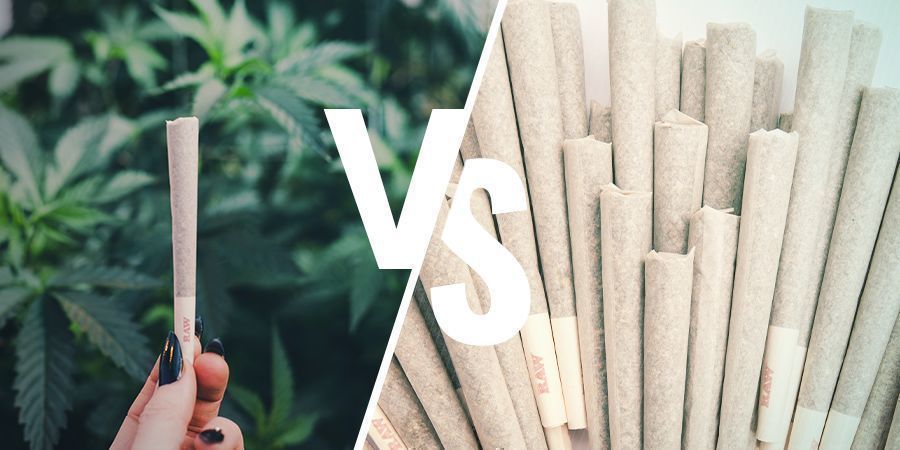
Before we go further, we should also highlight distinctions between different types of daily cannabis users. They're not all in trouble, as we'll explain in a bit, but trouble can occur if they're not careful.
FROM CANNABIS USE TO TOLERANCE TO DEPENDENCE TO WITHDRAWAL
As we discussed before, it all starts with occasional use. From there, if one gets more access, they might smoke long enough to develop a tolerance. If they can't get more, they'll just deal with the diminished feeling of their usual dose. If they can, they'll likely raise their dose in an attempt to obtain the high they used to feel. That, of course, makes their tolerance shoot up, and a dependence begins to form.
This, however, is where paths can split. For example, someone who smokes daily but experiences no social, professional, or health drawbacks wouldn't be considered a marijuana abuser. They might be dependent, but if it's not affecting their life in a negative way, it's not considered a problem.
That same person, though, if they're not careful, might miss important events or obligations because they wanted to smoke. Or, they might develop health issues from smoking itself. If these sorts of things start to happen, and they're unable to stop smoking, they're considered to be abusing cannabis.
They'd experience withdrawal in either case, whether safely or unsafely using it daily. For the abuser, though, the withdrawal would be far more bothersome. Even then, it wouldn't begin to compare to a heroin or meth withdrawal.
WEED ADDICTION — FINAL THOUGHTS
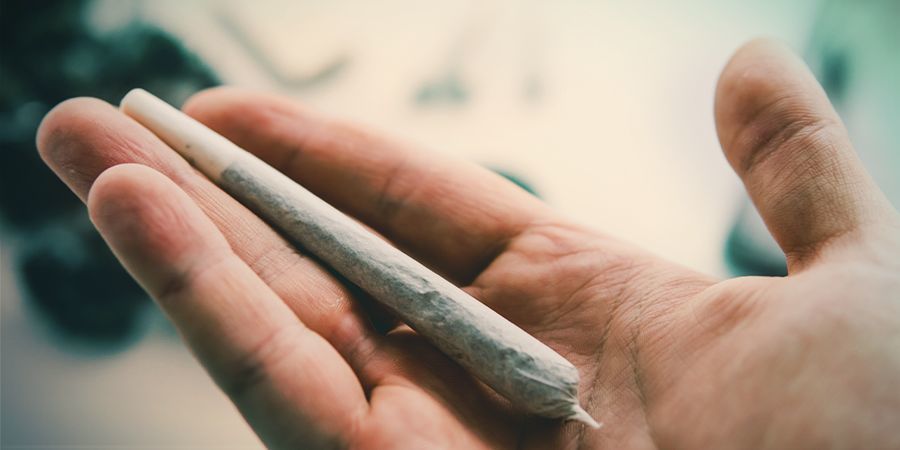
To answer the question posed in the title: Yes, cannabis can be addictive. With that said, cannabis addiction is notably less rare, and far less severe, than addictions to harder substances like heroin and meth, or even nicotine and alcohol.
If you're able to keep your social and professional priorities in order, and keep yourself healthy, there's no reason not to enjoy some green. On the flip side, if you know you have an addictive personality, or have low willpower when it comes to substances, you might want to reconsider. As any dispensary worker or cannabis advertisement will tell you: enjoy responsibly.
- (n.d.). Physical vs Mental Addictions: What's the Difference? | The Ranch PA - https://www.clarityway.com
- Koob GF, & Volkow ND. (2016 Aug). Neurobiology of addiction: a neurocircuitry analysis - PubMed - https://pubmed.ncbi.nlm.nih.gov
-
 7 min
February 16, 2024
Can You Overdose On Weed?
Perhaps you're too stoned right now and you're worried you might die. Maybe you've googled "Can I overdose on cannabis" and you're dreading the results? Let us put you at ease. You're going to be...
7 min
February 16, 2024
Can You Overdose On Weed?
Perhaps you're too stoned right now and you're worried you might die. Maybe you've googled "Can I overdose on cannabis" and you're dreading the results? Let us put you at ease. You're going to be...
-
 6 min
August 29, 2023
Cannabis Tolerance: What It Is And How To Bring It Down
Smoking weed too often and for too long can cause a tolerance to build up, thereby requiring you to use more weed to reach the same level of high. Science now understands cannabis tolerance a bit,...
6 min
August 29, 2023
Cannabis Tolerance: What It Is And How To Bring It Down
Smoking weed too often and for too long can cause a tolerance to build up, thereby requiring you to use more weed to reach the same level of high. Science now understands cannabis tolerance a bit,...
-
 4 min
February 16, 2020
Searching For A Gateway Drug—Cannabis Vs. Alcohol
For decades, we've heard parents, teachers, scientists, and politicians refer to cannabis as a gateway drug. But is dealing with the problem of drug abuse and addiction as simple as pointing a...
4 min
February 16, 2020
Searching For A Gateway Drug—Cannabis Vs. Alcohol
For decades, we've heard parents, teachers, scientists, and politicians refer to cannabis as a gateway drug. But is dealing with the problem of drug abuse and addiction as simple as pointing a...











 United States
United States








